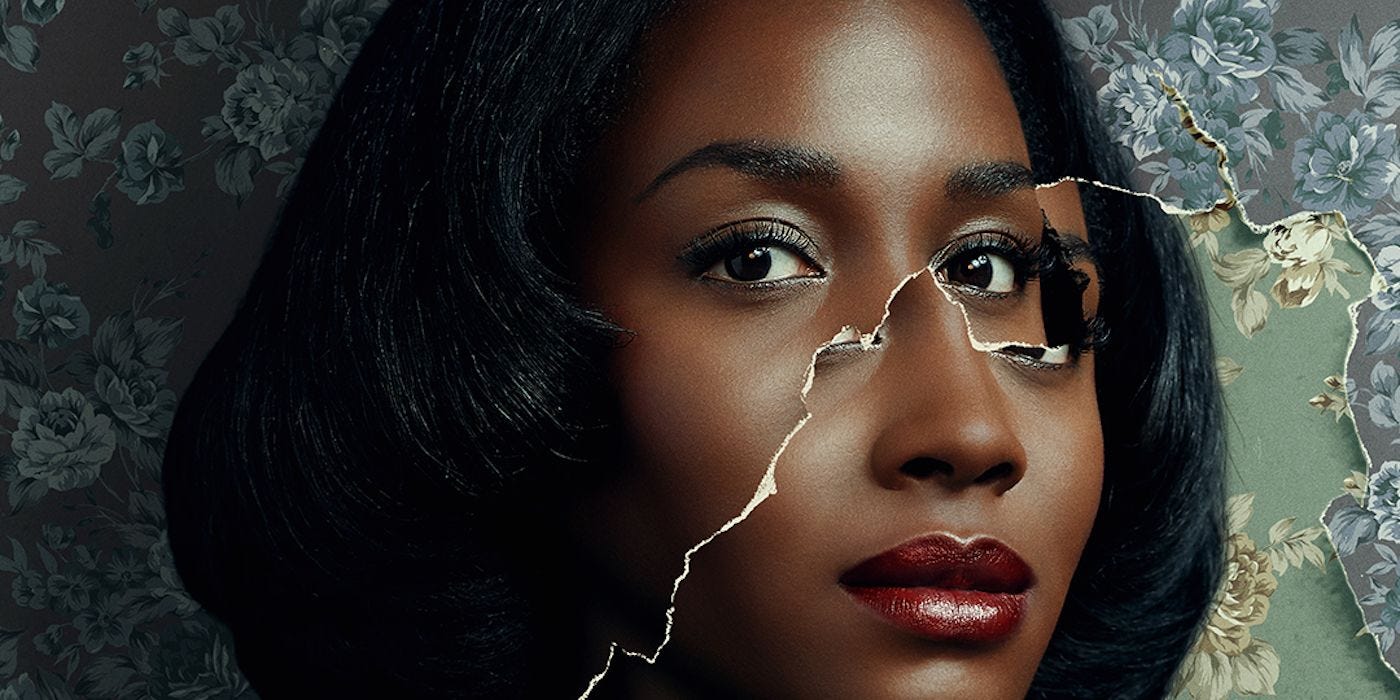We will return to our regular schedule next week, but until then…
If I never heard the phrase “Black trauma” again in the context of cinema or television again I will lead a very happy life. Otherwise, I’m moving to Zurich like Tina Turner and sealing myself off from the rest of the world.
Because the internet has grievances with Lena Waithe and the trailer for Them looks gruesome (I have no thoughts on the show, which I have not watched), an influx of complaints about “Black trauma porn” have entered the lexicon. Listen, I’m not trying to watch slave movies and there is something to be said about using racial violence against Black Americans as an ironic metaphor because well, that shit actually still happens in America. Buuuuuut I don’t know if many people know this… people in horror movies get killed. And maimed. And there’s a lot of gore and violence. And Black horror fans have had to watch “dumb ass white movies about dumb ass white girls get their dumb asses cut the fuck up,” to paraphrase Jada Pinkett in Scream 2.
Not that it isn’t understandable. When something irks you to your core but you can’t quite explain it, you tend to resort to base critiques like “this is boring” or “this sucks” rather than parsing through your own emotional reaction to a piece of art and describing why you personally don’t love it. But that’s why criticism is an art, yes? Most of us can barely assess our emotions on a day-to-day basis, let alone in the context of how we’ve responded to a film. But that’s exactly what complains of “Black trauma porn” are. It belies the fact that Black artists have written about trauma, physical and emotional ever since we first told oral stories around a crackling fire. As I mentioned in my previous newsletter, James Baldwin was critiqued for having a Black protagonist commit suicide in Another Country. But as a man who’d attempted it more than once in his life, who the fuck was anyone to tell him that Black people can’t write about suicide?
It is understandable that audiences are exhausted by slave films and now by horror films that loosely slap supernatural elements onto white people in Mad Men garb hurling racist insults and terrified Black people. But it’s not because Black people are being terrorized in these films, it’s because they reek of crass commercialization and are films meant to make white people squirm as the violence on the screen and Black people to think that they’re watching something deep. There’s nothing deep about lifting actual moments from Black history (and shit, Black present) and putting them in a script without a point of view or something to actually say about it. That’s what people are responding to, instinctively.
But Black horror fans deserve their own stabs at the genre. Some of these stabs will be excellent. Some will be bad, because not everyone is talented. But the idea that Black people should stay out of the horror genre because some people don’t want to see pain inflicted on Black people in horror movies is the most maddening pop culture argument of 2021. If you don’t like horror movies then don’t fucking watch them. We are no longer facing a dearth of Black entertainment. There are talented Black artists creating movies, television, podcasts, fiction, non-fiction, art, etc. for you to enjoy everywhere you look. If horror isn’t your bag, then let someone else rock it.
It’s up to Black creators who love the genre to try new things that don’t involve race-based horror, just because it’s au courant. Horror is a vast genre and some of your favorite authors have been writing in that space for decades (Octavia Butler and Toni Morrison to name a couple, and more recently James Hannaham’s Delicious Foods) and I’m excited for Black people inspired by that work to get a chance to tell stories that aren’t catering to executives who just want to make another Get Out.
At any rate, here are three incredibly engaging pieces on Them and black horror that I enjoyed this week:
“Them is Pure Degradation Porn,” by Angelica Jade Bastien
“‘Black trauma porn’: Them and the Dangers of Jordan Peele Imitators,” by Jason Okundaye
“how come these ghosts is white?,” by Brandon Taylor




